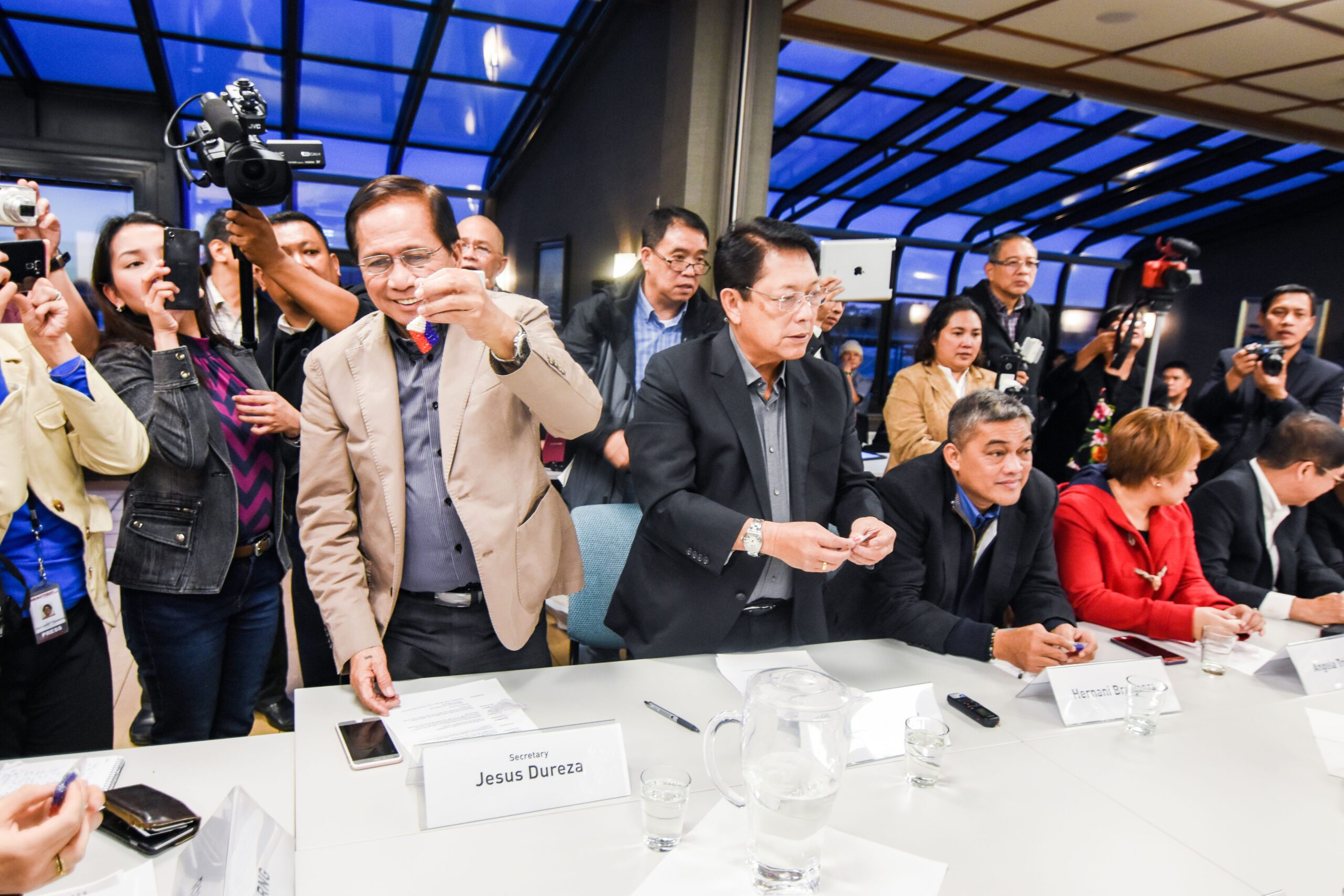SUMMARY
This is AI generated summarization, which may have errors. For context, always refer to the full article.

MANILA, Philippines – The second round of talks between the Philippine government and the communist National Democratic Front (NDF) hit a snag on issues involving the promised general amnesty for “political prisoners” and socio-economic reforms. (READ: PH, NDF back in Oslo to tackle root cause of conflict)
But both camps, talking in Oslo, Norway, remain committed to the peace process that the government aims to complete by August 2017.
The NDF pressed for the immediate release of 432 political prisoners, saying delays “can serve as a disincentive to the NDFP in further pursuing the discussions on prolonging the ceasefire and arriving at a bilateral agreement on a more stable ceasefire.”
Separate unilateral ceasefires were declared by the Armed Forces of the Philippines (AFP) and the New People’s Army following the successful first round of talks in August. Armed encounters have stopped, but the lack of operational guidelines to guide soldiers and NPA combatants threaten the ongoing ceasefire.
NPA spokesperson Ka Oris on Saturday, October 8, called on President Rodrigo Duterte to “tame” the AFP because “not a few NPA units are having difficulty holding back offensives” because of the military’s continued operations.
A bilateral ceasefire agreement aims to establish the ground rules.
Delays in CASER
Talks on socioeconomic reforms – expectedly the most contentious issue in the peace process – were also delayed because of disagreements on the outline of the resulting Comprehensive Agreement on Socioeconomic Reforms (CASER).
The NDF wants policies that will push for agrarian reform, national industrialization, environmental protection, rights of the working people, foreign economic and trade relations, and monetary and fiscal policies.
It said these will address the root cause of conflict and end Asia’s longest running communist insurgency.
The NDF blocked government’s move to include in the outline “9 major outcomes” that it said are “merely generalizations” – poverty eradication, environment and climate justice, globally competitive economy, adequate and quality social services, reduced inequalities, peaceful rural communities, food security, living incomes, and gender equality and representation.
Hernani Braganza, chairman of the government committee negotiating CASER, said it is important to include the desired outcome. “We want the outcomes spelled out in CASER because we do not want to limit the discussions only on the root causes of poverty. We also want exhaustive discussions on how we, the GRP and the NDF, can agree on a shared view of the future for the Philippines,” he said.
Julie de Lima, chairperson of the NDF panel negotiating CASER, said it was the government panel that “requested the postponement of discussions on the CASER for them to elaborate on their nine-point outcomes-based proposal.”
“The main purpose of the peace negotiations is to address the roots of the armed conflict which, among others, includes poverty, landlessness, joblessness, hunger, and inequality,” she said.
The 2nd round of talks began on October 6 and will end on October 10. – Rappler.com
Add a comment
How does this make you feel?
There are no comments yet. Add your comment to start the conversation.